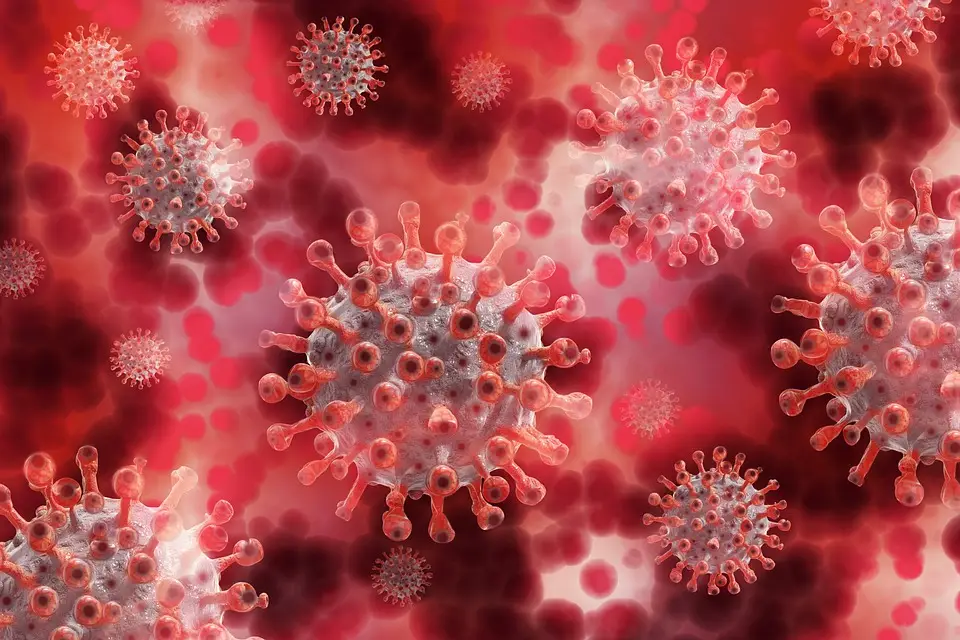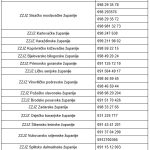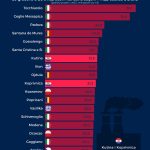As Poslovni Dnevnik writes, molecular biologist and member of the Croatian Government’s Scientific Council, Andreja Ambriovic Ristov, told HRT on Monday that we shouldn’t be surprised that the South African strain of the novel coronavirus, which is already present in many European countries, has now arrived in Croatia. Luckily, as she says, the infected tourists didn’t pass the disease on to anyone else.
Andreja Ambriovic Ristov has said she expects Croatia to receive more doses of the vaccine and she hopes the country will manage to achieve a vaccination rate of at least 50 percent.
”Vaccination of the population depends on the spread of these variants, for variants that spread faster, we’ll need more vaccination. Perhaps the data on 70 percent of the population needing to be vaccinated, which would be enough for collective immunity, will have to be revised. The fight against these new variants is to keep the epidemic under control and reduce the number of circulating variants in the population,” explained Andreja Ambriovic Ristov.
“We need to continue to monitor all these variants, by sequencing or introducing a customised PCR method that will look for these variants, the South African one, and for the British variant we already know that it is present in our population, at a level of about 20 percent. As we know that this variant is spreading faster, we expect that it will compete with the old strain and overtake it,” she added.
What we currently know is that the British variant of the novel coronavirus spreads more rapidly, but the symptoms are the same as for the previous variants. We know that the South African strain is spreading faster, but we don’t know how much. For the South African strain, we don’t have sufficient data on whether it causes a more severe form of the disease or not.
“When it comes to populations where there are two fast-spreading variants circulating, it will be interesting to see which one will win. People can in no way detect if it is a variant, the symptoms are the same. This virus causes different symptoms in people of different ages, from people being asymptomatic carriers to people who are younger ending up with severe symptoms,” said Andreja Ambriovic Ristov.
She stressed that all of the current vaccines against the virus work well because they protect against severe forms of the disease.
She pointed out that it is not at all true that overcoming the disease protects better than vaccines. ”Immunity gained from a vaccine is better than overcoming the disease precisely because the symptoms are different, so it is recommended that people who have caught coronavirus and recovered still go and be vaccinated. It’s clear that SARS-CoV-2 is not a seasonal virus and that it is present throughout the year,” Ristov said.
Asked why there is an increase in the number of patients in the countries where it is now summer, Andreja Ambriovic Ristov explained: ”It all depends on the epidemiological measures, the number of people around and the number of circulating viruses. If one variant is more contagious than another, then even with existing epidemiological measures, the epidemic flares up. There’s no need to panic about new variants, they are constantly being created through mutations. We expect new variants and that’s why we’re constantly monitoring them. The way to fight these new variants is with epidemiological measures that reduce the circulation of the virus.”
Speaking about the situation in Croatia, Andreja Ambriovic Ristov stated that the measures were delayed at the end of the year, which was reflected in the number of new cases of coronavirus. “If we see an increase in the number of infected people, and given which variant is in question, we’ll certainly propose the introduction of stricter measures,” she said.
Andreja Ambriovic Ristov recommended that citizens be vaccinated with AstraZeneca, adding that she expects that its effectiveness in the elderly will not be much lower than it is in the younger population.
”We’re all amazed at what is happening with the low utilisation of the AstraZeneca vaccine. The professional literature states that it has an efficiency of 62 percent. Influenza vaccines are 40 to 60 percent effective and anyone who has been vaccinated has had far fewer symptoms and no one has died. I see absolutely no reason why vaccines with an efficiency of 62 percent are not considered as good as the Moderna or Pfizer vaccines,” she told HRT.











